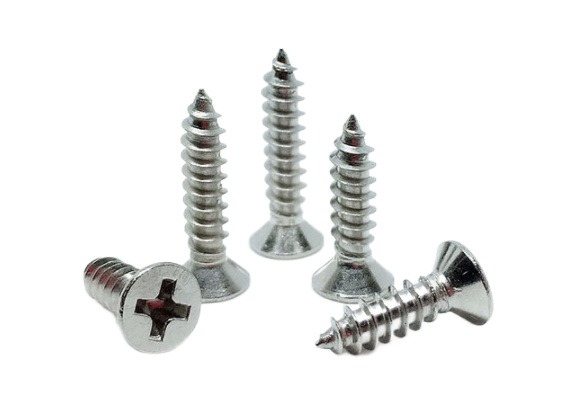How to Select the Right Screws for Metal Studs
Selecting the appropriate screws for metal studs is paramount for ensuring structural integrity, longevity, and safety in construction projects. Unlike wood studs, metal studs demand specialized screws tailored to provide maximum strength and stability. This article delves into the types of screws commonly used for metal studs and offers comprehensive guidance on choosing the right screws for various applications.

Importance of Choosing the Right Screws for Metal Studs:
Structural Integrity:
Utilizing the correct screws is crucial for maintaining the structural integrity of metal stud frameworks. Properly fastened studs ensure sturdy connections, safeguarding the overall stability and safety of the structure.
Load-Bearing Capacity:
Metal studs often bear significant loads, such as drywall or fixtures. The right screws offer the necessary strength and gripping force to support these loads, preventing sagging, shifting, or collapse.
Prevention of Damage:
Using screws designed for wood on metal studs can cause damage such as thread peeling, hole widening, or stud deformation. Choosing the wrong screws jeopardizes stud integrity and may necessitate costly repairs or replacements.
Compatibility:
Metal studs come in various gauges, thicknesses, and materials. Using screws specifically designed for metal studs ensures a proper fit and secure attachment, avoiding issues related to size or material incompatibility.
Time and Cost Efficiency:
Selecting the right screws saves time and money in the long run. Properly chosen screws are easier to install, require fewer reworks or repairs, and provide a reliable fastening system, eliminating the need for future adjustments or replacements.
Commonly Used Screws for Metal Studs:
Self-Drilling Screws:
Equipped with a drill bit at the tip, self-drilling screws create their own pilot holes as they are driven into metal. These hardened steel screws with sharp tips are ideal for connecting metal studs or attaching materials like drywall or sheathing.
Self-Tapping Screws:
Similar to self-drilling screws, socket self-tapping screws have a sharp point but require a pre-drilled pilot hole. Widely used for connecting accessories, brackets, or fixtures to metal studs, they can form their own threads when driven into metal.
Fine-Thread Screws:
Fine-thread screws feature tightly spaced threads that offer excellent holding power, especially in thinner gauge metal studs. They distribute the load evenly, reducing the risk of stud breakage or screw stripping, and are available in various lengths and thread patterns.
Coarse-Thread Screws:
Designed for heavy-duty applications and larger metal studs, coarse-thread screws have wider-spaced threads that provide enhanced grip and resistance to pull-out. They are suitable for high-strength operations like connecting large fixtures or equipment to metal studs.

Factors to Consider for Choosing the Right Screws for Metal Studs:
Corrosion Resistance:
Opt for screws made of corrosion-resistant materials like stainless steel or coated screws to prevent rusting, especially in environments prone to moisture or other corrosive elements.
Screw Length and Diameter:
Ensure the screw length is sufficient to penetrate the metal stud and secure the material without protruding excessively. Match the screw diameter to the size of the pre-drilled hole or the self-drilling capacity of the screw for proper installation.
Conclusion:
Choosing the appropriate screws for metal studs is paramount for ensuring the strength, stability, and longevity of construction or remodeling projects. By selecting screws that offer secure fastening, corrosion resistance, and compatibility with metal stud requirements, you can save time, money, and ensure the long-term success of any building endeavor.
- Art
- Causes
- Crafts
- Dance
- Drinks
- Film
- Fitness
- Food
- Jogos
- Gardening
- Health
- Início
- Literature
- Music
- Networking
- Outro
- Party
- Religion
- Shopping
- Sports
- Theater
- Wellness
